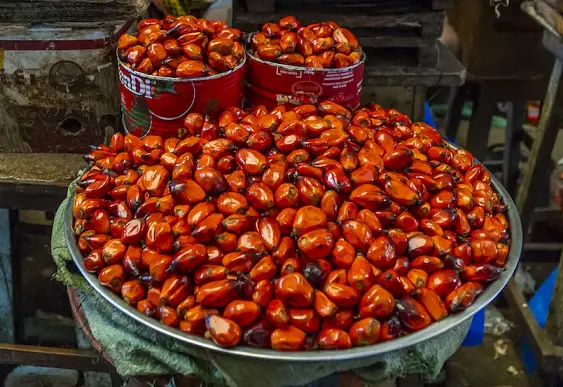Palm oil prices jumped more than 2% off news that Indonesia, the world’s biggest producer of palm oil has tightened a policy that requires companies withhold more oil from being exported, so it can be sold domestically.
The government announced it will reduce the total amount of palm oil that producers are allowed to export to six times the domestic sales requirement, a reduction from the previous threshold of eight times the domestic sales requirement. The change was announced by Budi Santoso, director general of foreign trade at the trade ministry. On Friday he released a text message saying the new rules would take effect on January 1st.
The rule, called the domestic market obligation, mandates that palm oil exporters must first sell a set portion of their supplies domestically, before they are allowed to be granted an export license. The rule was first implemented in May of this year, after Indonesia’s palm oil export ban was lifted.
An official at the coordinating ministry for maritime affairs and investment, Firman Hidayat, noted the government wants to assure there are ample domestic supplies for the Ramadan and Eid holidays in April, given production is historically seasonally weaker in the first quarter of the year.
Hidayat also noted the nation intended to impose a higher biodiesel blending mandate in 2023, and that will also increase consumption of the oil. He added, “We don’t want domestic supply to be reduced and risk an increase in local prices.”
At Kuala Lumpur, which hosts the benchmark futures contract, palm oil prices rose in response to the move to tighten restrictions on exports. Analysts note this will likely encourage Malaysia, the world’s second largest exporter, to boost its exports to take advantage of the price increase. Futures were up as much as 2.5%, to 4,193 ringgit ($950) per ton, which would put it on track for the highest close in a month.
Gnanasekar Thiagarajan, head of trading and hedging strategies at Kaleesuwari Intercontinental noted that the latest policy will constrain supply right as Indonesia is planning to increase the use of the oil in biofuels. He predicts the first quarter of 2023 will see higher prices in response.

